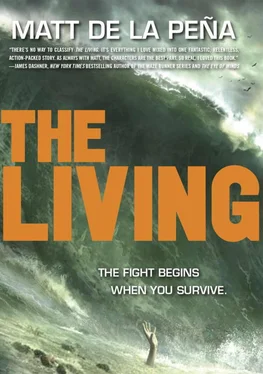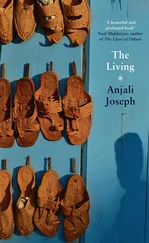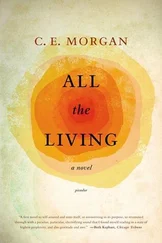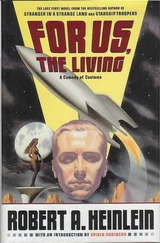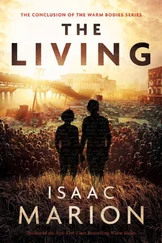Shy stared into the water for what seemed like hours, watching fish swim right past his hook, trying to figure out what he was doing wrong. Maybe it was the fake bait he’d found in the supply cabinet. Or maybe he was fishing too shallow. Or maybe the sharks in the area had scared all the fish away or the ones who stayed were too nervous to eat.
At one point he overheard Addison saying something to the oilman about a rescue boat finding them. Or a rescue plane. But Shy no longer held out hope for a rescue anything. Every emergency team that existed would be focused on the earthquake victims. Their tiny lifeboat, drifting in the middle of the Pacific, wasn’t even on the radar.
An orange and white fish swam near his hook to investigate. It was thin and no bigger than the palm of his hand, but he begged it to bite. “Come on, you little bastard,” he told it. “Swallow that hook for me. You know it looks delicious as shit.”
But the fish turned and swam away.
Shy dropped his head in disappointment.
He could sense Addison behind him, judging his failure.
By late afternoon Shy felt amazingly weak. His muscles were cramping from hunger and dehydration. He stood at the front of the boat with the fishing line anyway, waiting for something to bite.
To take his mind off his discomfort, he started picturing random things from back home. The taquerias and liquor stores that lined his street. Neddie’s Laundromat, where they took their dirty clothes on Sundays. The cracked pavement of his apartment complex parking lot, where he did all his ball-handling drills. His mom walking into the apartment from work, hanging her keys on the hook by the door and sorting through the mail.
He replayed the last time all four of them were together. Sitting at the kitchen table eating sweet bread from the corner bodega. Drinking orange juice. It was the morning before this second voyage, and they were mostly quiet because they still didn’t know how to act after the death of his grandma.
Before Shy left, he turned to everyone, duffel bag slung over his right shoulder. “Guess I’ll get back with you guys in eight days.” He hugged his mom and sis, then held a fist out to Miguel, who gave it a little-kid bump. Then Shy was out the door, rumbling down the steps, climbing into the idling cab that would take him to the bus station.
Eight days.
Shy pulled his line back into the boat and stood there looking over the massive ocean and thinking about that. The sun burning his face. Empty stomach twisted in knots.
All these things from back home.
His life.
Gone.
It was the first time he’d actually thought about what he’d lost in a conscious way.
He glanced back at Addison and the oilman. Both watching him. Then he returned to the ocean, which stretched out beyond all comprehension. In every direction. The three of them in this tiny boat with no food and barely any water, crawling slowly toward their deaths.
A while later Shy heard Addison sloshing her way over to him. “They smell really bad,” she said, pointing at the bloated bodies lying in the boat.
Shy nodded. At least they agreed on one thing. “Definitely getting a little ripe in here,” he said.
“Well?” she said, her tone changing. “Can’t you do something about it?”
Shy looked at Addison, and then he looked at the bodies. They’d always been a symbol of his hope of being rescued. If he kept them in the boat, the boat was more likely to be found. That’s what was in the back of his head. And the rescue team would commend him for hanging on to the bodies so the families could take them back home and bury them. Shy realized something about himself right then. It was one thing to decide he’d given up hope. It was another to kill the symbol of it.
He went over to the first body and held his hand over it, cringing at the smell. He didn’t want to even touch it. But he had to. He forced himself to lift the slimy, awful-smelling corpse into a sitting position and he looked at it. Bloated features stuck on a strangely crooked face.
He glanced back at Addison, who turned her head as if she couldn’t watch. The oilman, too.
Shy looked back at the woman. “Sorry about this,” he said under his breath. Then he turned his head to take a deep breath and held it as he strained to lift the heavy body up and over the side of the boat. He watched it splash into the ocean and slowly drift off in the life jacket as he stood wiping his hands on his pants.
He took the life jackets off the rest of the bodies before dumping them into the water, too.
When he was done he moved back over to Addison, saying: “Happy now?”
“At least we won’t die of that smell,” she said.
He picked up his fishing line and cast it back into the sea.
“Okay,” she said, “now we have to get to those islands.”
Shy turned to look at her, keeping his line in the water. “Too bad we have no clue which way to go.”
She looked all around the ocean with a concentrated look on her face. “What if we just picked a direction? At least that way we’d be trying. ”
Her tone was super condescending, like she was blaming Shy for them being stranded. “Fine,” he said. “Point which way, and I’ll get us going.”
“Why me?”
“Because it’s your idea,” he said.
She gave him an exaggerated frown. “Don’t they train you people for this kind of thing?”
“What, sailing to some island nobody’s ever heard of in a broke-ass boat?” Shy pointed near his feet. “With only one oar?”
“You don’t have to be an asshole about it.”
“Look, Addison,” Shy said, not wanting to spend the last of his energy arguing. “I’m sorry about your friend, okay? And your dad. It sucks. But I lost people, too.”
She looked down at her feet. It seemed like she was going to get upset again, so Shy said: “For real, though. Pick a direction and we’ll give it a shot. Like you said, it’s better than just sitting around doing nothing.”
Addison turned to Mr. Henry and said: “Do you have an opinion about this?”
The man shook his head without looking up. Shy could tell he was coming to the end, and he wished he could do something. Give him painkillers, at least, to ease his suffering. But they had nothing.
“What about you?” Addison asked Shy.
He turned to the ocean. The tide seemed to be moving in one specific direction. Maybe it was being drawn toward one of the islands—though it could just as easily be the opposite. Shy shrugged and mentioned it anyway. “I guess we could go with the tide. We’ll move faster that way.”
“Okay,” she said, looking up at him. “That makes sense.”
Shy showed Addison how to bait the hook and cast the line, then he sloshed his way to the front of the boat with his oar and dug back into the water.
“It’s Addie, by the way,” she called to him from the side of the boat.
He turned to look at her, confused.
“My name,” she said. “Only old people call me Addison.”
Shy nodded. “Addie. Okay.”
He went back to working his oar through the water, wondering if they were being nice to each other now.
When the sun started setting, Addie came to Shy and suggested they trade for a while. He happily agreed and handed her the oar, then stood back to watch. It took her a while to get the hang of it, but once she did, she got them going pretty good. He was surprised a skinny, private-school racist had the strength to pull it off.
She turned around, half smiling, and said: “Is this right?”
“Damn, Addie,” he told her, “you’re not as useless as I thought.”
Читать дальше
